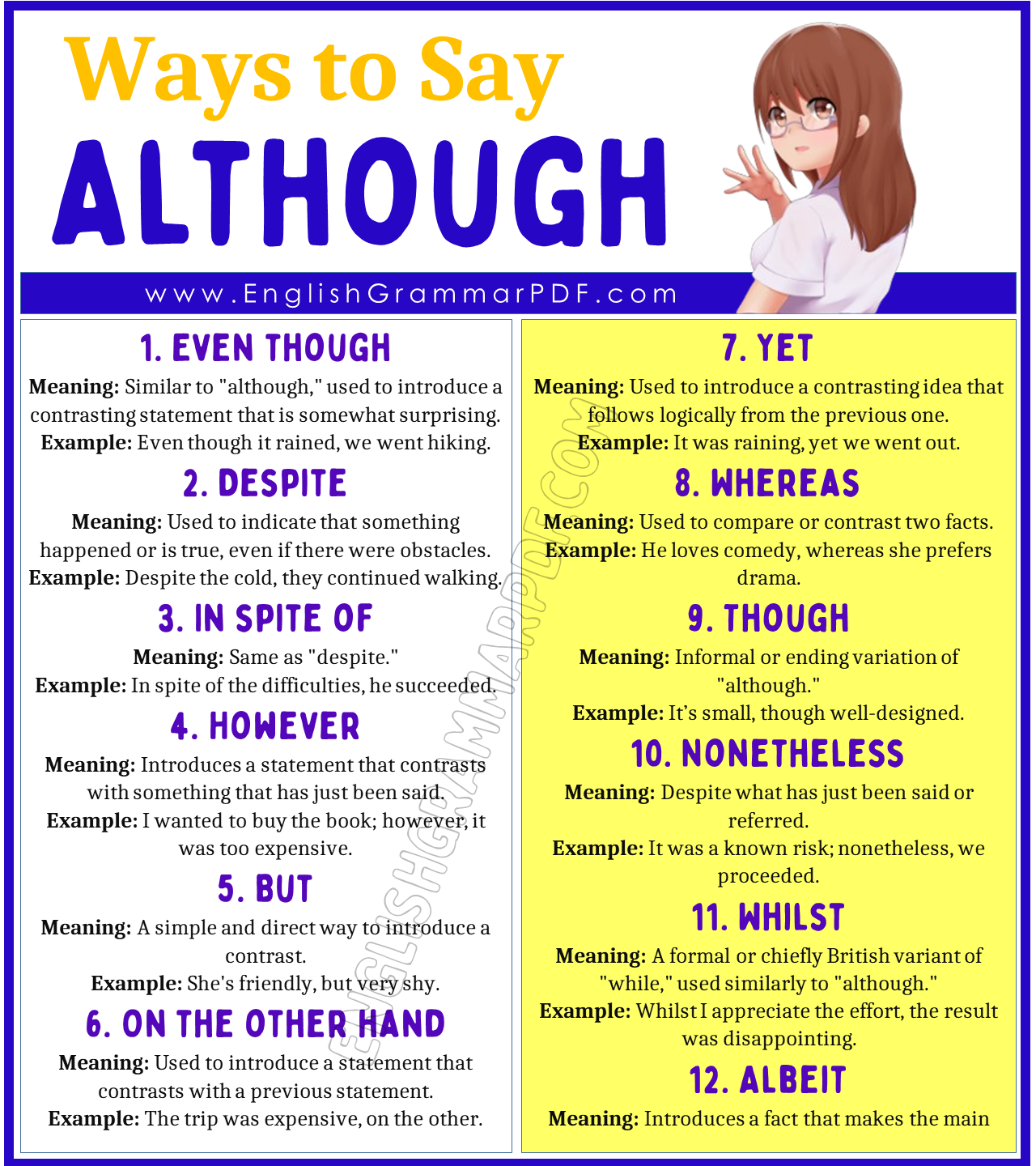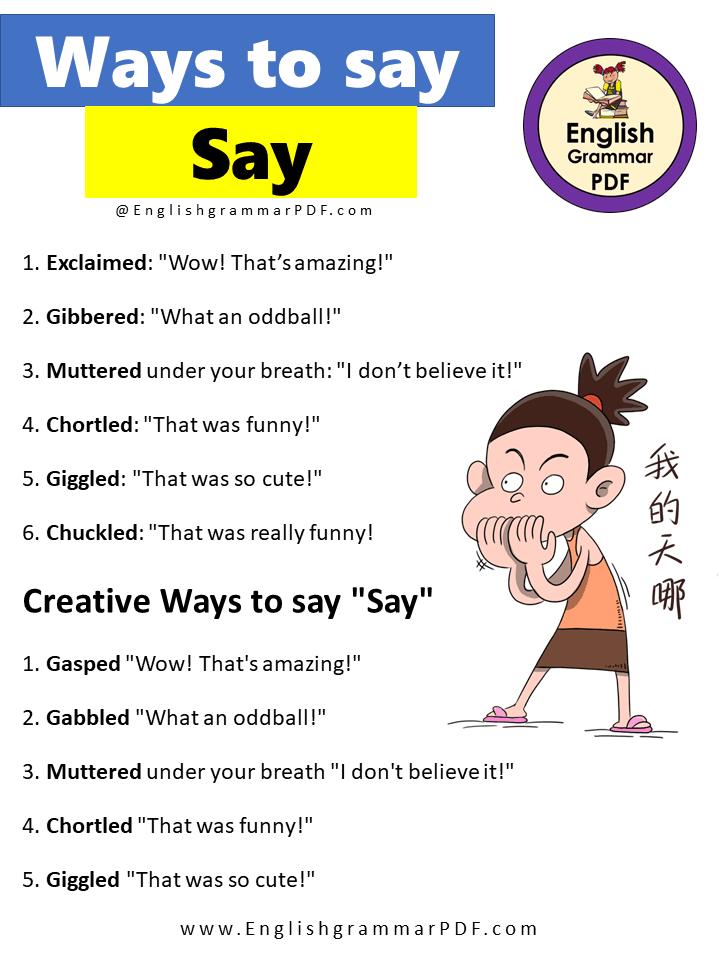“Although” is a versatile conjunction used to introduce a statement that makes the main sentence surprising or unexpected. It’s a staple in both spoken and written English, used to express contrast or exception. This blog post explores 20 different ways to express the idea conveyed by “although,” providing you with varied options to enhance your communication skills. Each alternative will be explained briefly with an example to illustrate its use, ensuring you can apply these alternatives effectively in your own language.
Ways to Say Although
1. Even though
Meaning: Similar to “although,” used to introduce a contrasting statement that is somewhat surprising.
Example: Even though it rained, we went hiking.
2. Despite
Meaning: Used to indicate that something happened or is true, even if there were obstacles.
Example: Despite the cold, they continued walking.
3. In spite of
Meaning: Same as “despite.”
Example: In spite of the difficulties, he succeeded.
4. However
Meaning: Introduces a statement that contrasts with something that has just been said.
Example: I wanted to buy the book; however, it was too expensive.
5. But
Meaning: A simple and direct way to introduce a contrast.
Example: She’s friendly, but very shy.
6. On the other hand
Meaning: Used to introduce a statement that contrasts with a previous statement.
Example: The trip was expensive, on the other hand, very enjoyable.
7. Yet
Meaning: Used to introduce a contrasting idea that follows logically from the previous one.
Example: It was raining, yet we went out.
8. Whereas
Meaning: Used to compare or contrast two facts.
Example: He loves comedy, whereas she prefers drama.
9. Though
Meaning: Informal or ending variation of “although.”
Example: It’s small, though well-designed.
10. Nonetheless
Meaning: Despite what has just been said or referred.
Example: It was a known risk; nonetheless, we proceeded.
11. Whilst
Meaning: A formal or chiefly British variant of “while,” used similarly to “although.”
Example: Whilst I appreciate the effort, the result was disappointing.
12. Albeit
Meaning: Introduces a fact that makes the main point less strong.
Example: He accepted the job, albeit with some hesitation.
13. Notwithstanding
Meaning: Similar to “despite.”
Example: Notwithstanding the rain, the event was successful.
14. Conversely
Meaning: Introduces a statement that contrasts with the first statement by presenting an opposite situation.
Example: The north enjoys rain; conversely, the south suffers droughts.
15. Contrary to
Meaning: Used to show a contradiction.
Example: Contrary to expectations, he arrived early.
16. At the same time
Meaning: Indicates a contrast between two simultaneous occurrences.
Example: She felt happy, at the same time sad about the move.
17. While
Meaning: Used to contrast two statements or occurrences.
Example: She likes to swim, while he prefers to surf.
18. As opposed to
Meaning: Highlights a stark contrast.
Example: He chose tea, as opposed to coffee.
19. Then again
Meaning: Used to introduce a thought that contrasts or somewhat negates the previous one.
Example: The path seemed clear, then again, we could be wrong.
20. Be that as it may
Meaning: Acknowledges a fact but also introduces a contrasting thought.
Example: The car is expensive; be that as it may, it’s worth it.



